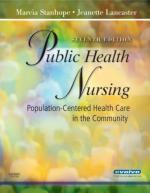|
This section contains 691 words (approx. 3 pages at 300 words per page) |

|
A population is a geographically distinct group of individuals of the same species that is co-occurring in time and space, and can potentially interbreed with each other. Populations are an important element of evolutionary biology, and in the ecology of species and communities.
Evolution is sometimes defined as a change in the genetic information of populations over time. Individual organisms can be more or less successful in their reproduction, which means that they vary in "fitness." Because their fitness varies, individuals are the targets of natural selection. Individual organisms eventually die, and can not evolve. Populations and the species of which they are components are the units of evolution.
Populations of all species change in size over time in response to environmental factors that affect four population-related (or demographic) variables: birth rate (BR), immigration rate (IR), death rate (DR), and emigration rate (ER). The change in population size...
|
This section contains 691 words (approx. 3 pages at 300 words per page) |

|


